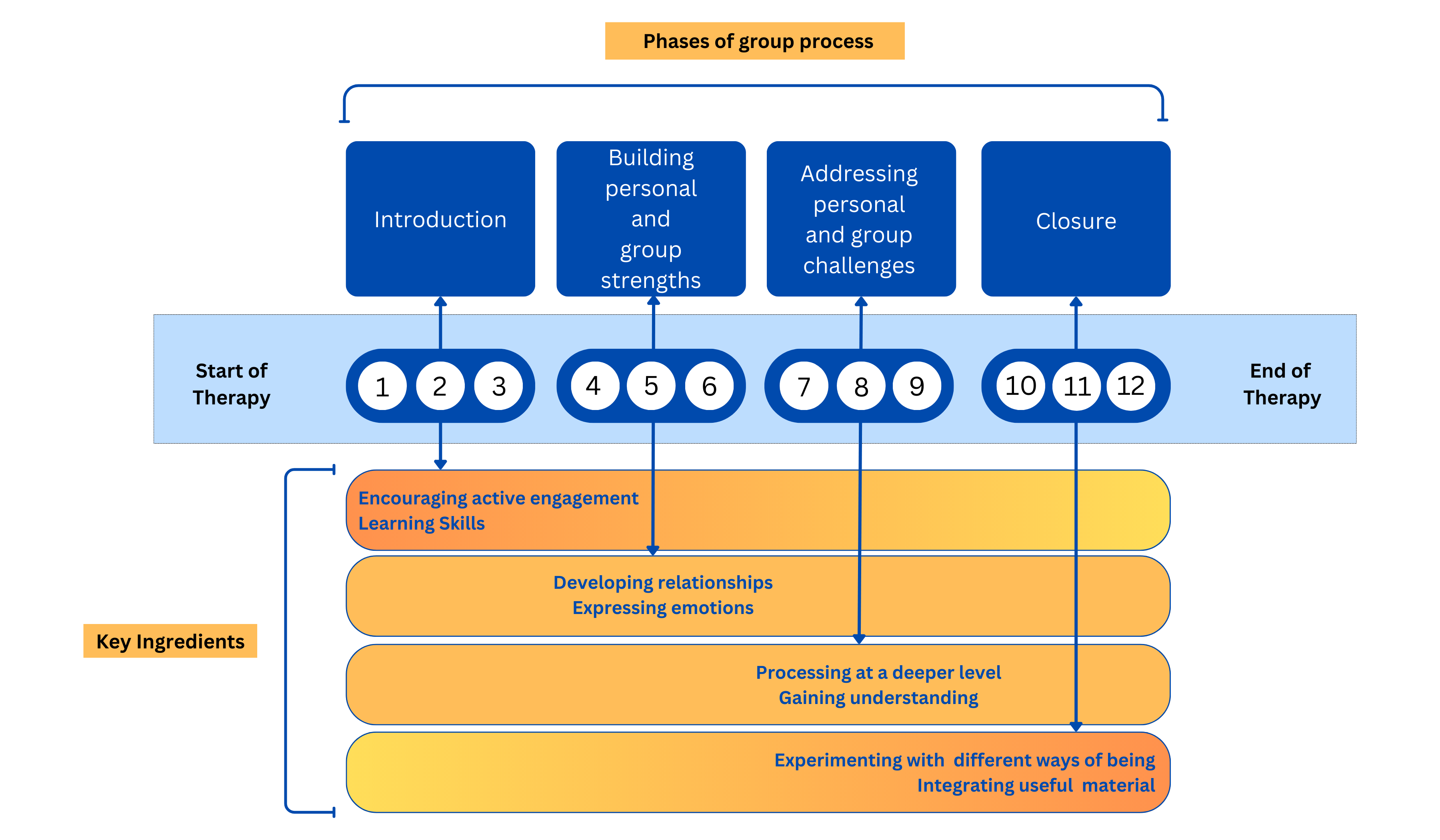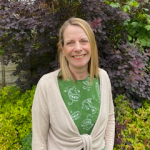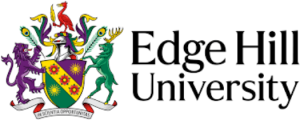Arts for the Blues is an evidence-based psychotherapy for depression, anxiety and mental wellbeing. The therapy is delivered in groups facilitated by Arts for the Blues trained practitioners. Sessions may include mark-making, gentle movement, writing, and music-making, and participants are supported to engage at their own pace.
Ingredients overview
Arts for the Blues is delivered in four stages, informed by cognitive behavioural, person-centred, psychodynamic, and group therapy Arts for the Blues is delivered in four stages, informed by cognitive behavioural, person-centred, psychodynamic, and group therapy approaches. The therapy includes eight key ingredients that are informed by the evidence of helpful factors in therapy. Each section of the therapy focuses on two specific ingredients and provides a framework under which therapeutic change is supported.
Toolkit
View our Arts for the Blues toolkit to see resources for individuals and organisations
Ingredients model

What do the key ingredients look like?
Case study
Watch what our service users at MIND Tameside thought of Arts for the Blues
Practitioners
We have trained over 400 practitioners, including therapists and artists, to deliver Arts for the Blues. Meet some of our Arts for the Blues trainers below.

Rebecca Ross-Williams
Rebecca is a theatre practitioner and Creative Director at Liverpool Lighthouse with an interest in arts and mental health and wellbeing and specifically drama as a tool to support healing and recovery in groups of people with trauma

Magdalena Kij
Magdalena is a freelance artist based in Manchester who finished her BA(hons) in Fine Art at the University of Salford and has worked as a community connector since 2020 in Charity Europia, working with Eastern and Central European ex-pats.

Leigh Gardner
Leigh is a facilitator, therapist, supervisor, lecturer and advocator of creative practice and working.

Ailsa Parsons
Ailsa is a BPS Chartered Psychologist, creative therapist, and lecturer in counselling and psychotherapy. Ailsa works therapeutically with individuals in private practice as well as with organisations, with a special focus on creative industries.
Example exercises
Find out more >
Become an Arts for the Blues accredited therapist.

